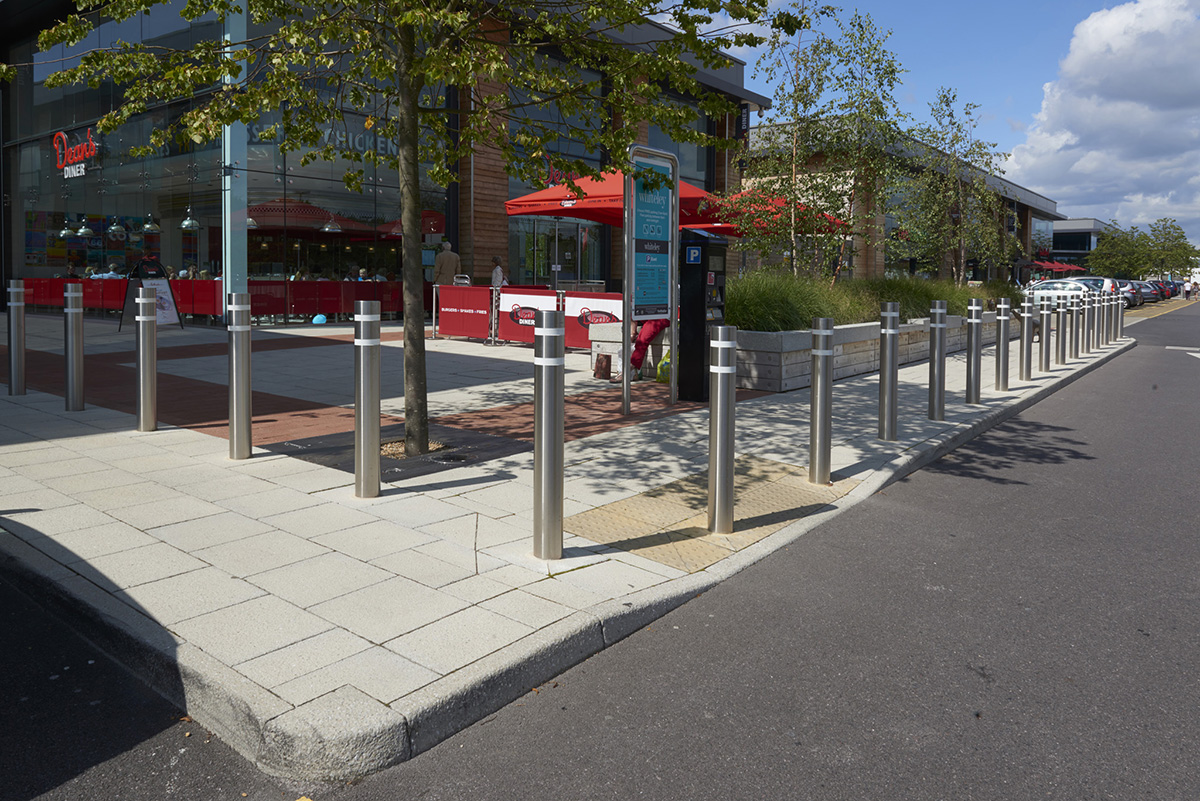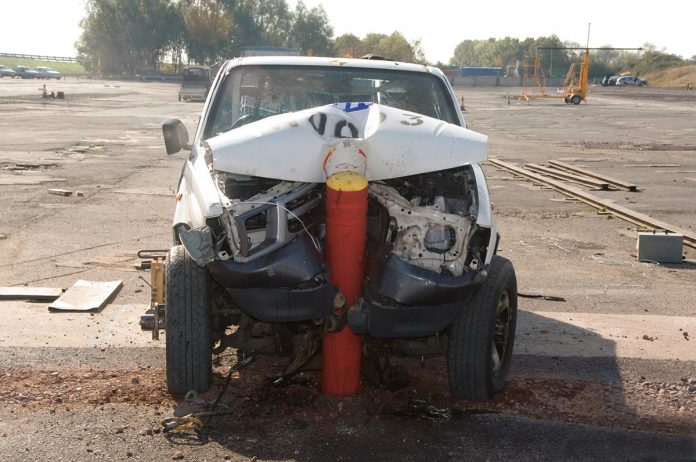Roger Knight, Marshalls’ Head of New Product Development and Engineering for Landscape Protection, explains what the new PAS 170 security standard will provide and the benefits it will bring for businesses and government organisations in terms of criminal vehicle impacts
Criminal ram raids cost the public and private sectors millions of pounds in damages every year. But, up until now, there has been no tested and proven standard for an assured security product to protect against this risk.
The rise in vehicle-borne terror attacks triggered a rethink of how central government, local authorities and businesses protect people, buildings and infrastructure. The result has seen planners and security advisors place a strong focus on redesigning road layouts in heavily pedestrianised areas and installing perimeter protection that can stop a rogue vehicle travelling at high speed.
But, the growing number of criminal ram raids on commercial property across the UK and Europe, particularly on retail outlets and ATMs, poses a different challenge. The most recent European ATM Crime Report found that criminal attacks on ATMs increased by 80% year-on-year in the first half of 2016. In the UK, the Association of Convenience Stores found that the sector incurred more than £8 million in damages from ATM ram raids last year, with a further £38 million for robberies and burglaries, a high proportion of which involved a vehicle impact.
Rather than using Landscape Protection products manufactured to the British Standard Institution’s (BSI) PAS 68 and IWA 14.1 standards, which have been installed in major cities across the UK and Europe to protect against terror attacks, mitigating against this threat requires a different approach.
 PAS 170 – Assuring security products at low-speed impacts
PAS 170 – Assuring security products at low-speed impacts
For any planner or security expert, it’s vital that the type of product installed is proportionate to the risk. In many situations where there is a criminal threat, such as a shop front, retail park or ATM, businesses and local authorities may only need security products that mitigate against vehicles travelling at lower speeds and not those manufactured to the highest specifications.
The government has introduced Publicly Available Specification (PAS) 170 to address this need – a new set of tested and proven standards that will ensure organisations can access an assured security product for this level of threat. The impact of this change will be significant as before now, no regulation of this type existed and the only lower-rated products available were ‘anti-ram’.
PAS 170 delivers a testing standard for vehicles of up to 2.5 tonnes travelling at between 10 and 20 mph – significantly lower than the regulations developed to mitigate against vehicle-borne terror attacks (PAS 68 and IWA 14.1), where the testing weights typically range from 1.5 tonnes to 7.5 tonnes for speeds of either 30, 40 or 50mph.
This can provide organisations with a number of benefits.
The lighter weights and vehicle speeds mean that product manufacturers are able to conduct a greater number of tests with a wider range of vehicles. Together with being more cost-effective, the new standard will provide an organisation with more choice when it comes to picking the right type of security product for a particular space. There are a large number of scenarios where there could be no requirement to consider a product that can stop a 7.5-tonne articulated lorry travelling at 50mph.
Unlike previous anti-ram solutions, new products tested and certified by PAS 170 will provide businesses and local authorities with assurance and proof of performance for the first time. While this will help protect commercial property, using security approved by a government standard will also help reduce insurance premiums.
Following our latest round of testing at the HORIBA MIRA crash test centre, Marshalls now has four bollard cores which have been tested to the PAS170 standard and passed. All four were tested using a 2,500 trolley, with one using the impact of a vehicle travelling at 20mph, with the others at 10mph. Each one achieved a penetration distance of under two metres – the limit for securing the certification.
While it offers greater flexibility in specifying security measures, this new requirement is not intended to replace any element of the full-scale vehicle impact test methods, which were created and designed to mitigate against a vehicle-borne terrorist threat using unmodified commercial vehicles. These standards are set by The Home Office and Office for Security and Counter-Terrorism, together with key agencies The Centre for the Protection of National Infrastructure (CPNI) and The National Counter Terrorism Security Office (NaCTSO). They were developed to help government organisations assure levels of protection against intentional or accidental vehicle impacts and to ensure defences were customised to the risk profile of a specific site, such as a town square or high street.
Bespoke products to mitigate criminal activity
We understand that different businesses and organisations require bespoke Landscape Protection products. With this in mind, customers can work with Marshalls to integrate the new PAS 170 standards into different solutions, ranging from planters and seating through to bollards. This enables us to develop the right solution for the space that offers a combination of both safety and aesthetics.
Whether government organisations or businesses are looking to mitigate against vehicle attacks linked to either terror or criminal activity, the key consideration is ensuring that the type of product they specify is proportionate to the level of threat. For the first time, planners and security specifiers will have the flexibility to procure an assured, certified product to mitigate against threats from lighter vehicles travelling at between 10 and 20mph intent on criminal damage or burglaries. This, in turn, will offer organisations a cost-effective method of protecting people certified to official standards that also take design and aesthetics into account.
Roger Knight
Head of New Product Development and Engineering for Landscape Protection
Marshalls PLC
Tel: +44 (0)1422 312 000
Please note: this is a commercial profile.











